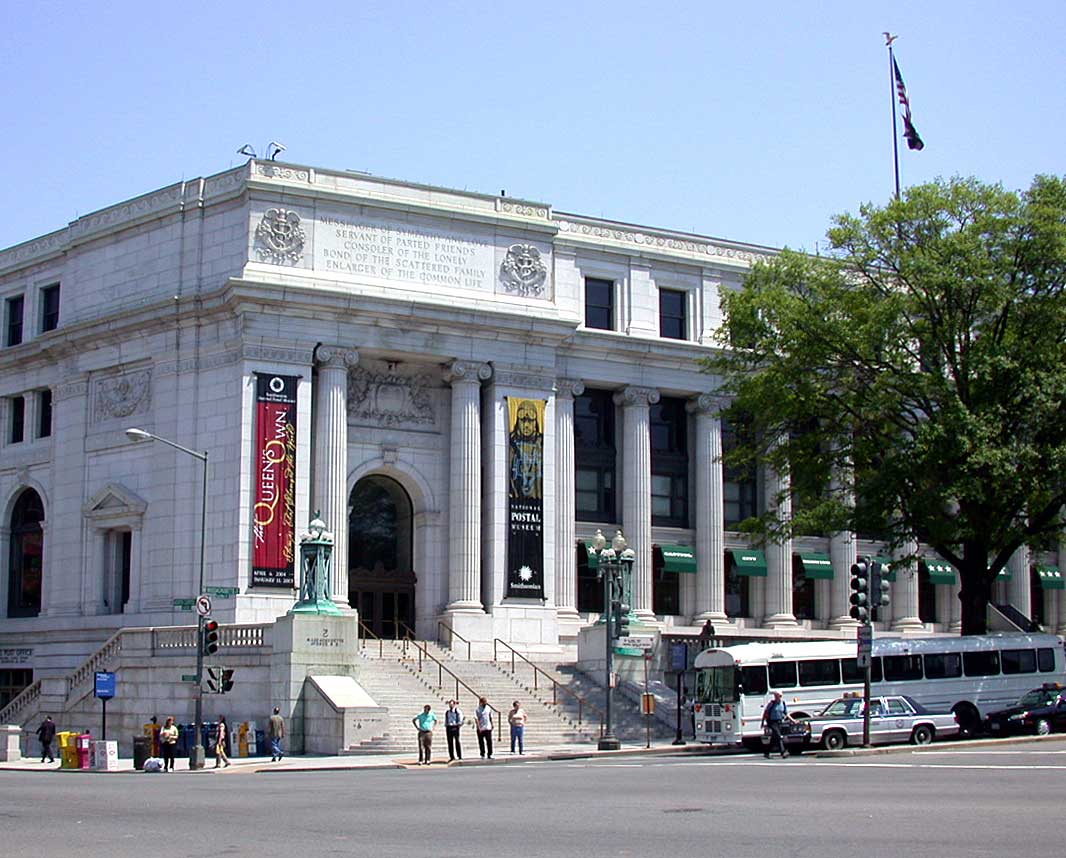National Postal Museum
Director: Elliot Gruber
Total Full-Time Employees: 34
Approximate Number of Artifacts/Specimens: 6 million
Visitors (2023): 170,013
Background
The Smithsonian’s
The museum occupies more than 100,000 square feet of the historic City Post Office Building, located next to Union Station in Washington, D.C. The museum has 35,000 square feet devoted to exhibition galleries. A U.S. Post Office stamp store, museum store and a 6,000-square-foot research library complement the exhibition halls.
Collections
The
Exhibitions
The National Postal Museum’s many exhibition galleries present America’s postal history from Colonial times to the present, while its collections contain prestigious U.S. and international postal issues and specialized collections, archival postal documents and 3D objects.
The museum atrium has a 90-foot-high ceiling with three vintage airmail planes suspended overhead, a reconstructed railway mail car, an 1851 stagecoach, a 1931 Ford Model A postal truck and a contemporary Long Life Vehicle postal truck. Among its permanent exhibitions are: “Binding the Nation,” “Systems at Work,” “Moving the Mail,” “Mail Call,” “Customers and Communities” and “Networking a Nation.” The museum is also home to the William H. Gross Stamp Gallery—the largest stamp gallery in the world.
Visitors can walk along a Colonial post road, ride with the mail in a stagecoach, browse through a small town post office from the 1920s, receive free stamps to start a collection and more. Museum presentations bring to life the story of “Owney,” the mascot dog of the Railway Mail Service, and tell the history of U.S. mail trains.
The museum’s website offers virtual exhibits, articles and information about collection objects, academic research and access to social media platforms.
Research
With more than 40,000 volumes and manuscript holdings, the National Postal Museum’s Library Research Center—a branch of Smithsonian Libraries—is among the world’s largest philatelic and postal history research facilities. The library is open to the public by appointment only.
Public Programs
The museum offers a variety of free educational and outreach programs—both onsite and online—throughout the year for visitors of all ages. Programs encourage and enable visitors to create their own greeting cards, discover the art of letter writing, explore the hobby of stamp collecting, participate in heritage hunts and more.
“Postmark,” the museum’s official e-newsletter, is published monthly. Exhibition catalogs, educational materials, museum brochures and a three-month calendar of events are published throughout the year.
About the Museum
The National Philatelic Collection was established at the Smithsonian in 1886 with the donation of a sheet of 10-cent Confederate postage stamps. Gifts from individuals and foreign government agencies and occasional purchases have increased the collection to today’s total of nearly 6 million items.
From 1908 until 1963, the collection was housed in the Smithsonian’s Arts and
The
The museum is located at the corner of
# # #
SI-40-2024
Marty Emery
202-431-8963
emerym@si.edu

